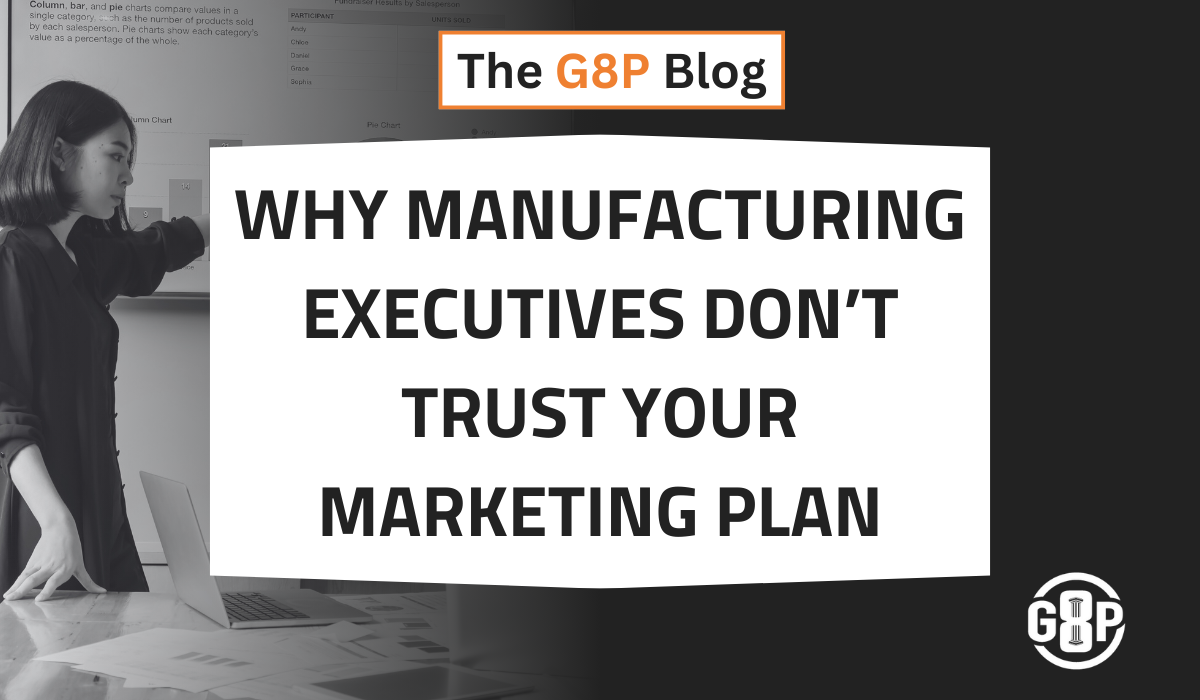Marketing For Manufacturers: Optimizing Your Technology Stack
The success of digital tools and software often boils down to two outcomes: transformative or wasteful. Surprisingly enough, the tool itself is not the main factor, but rather the training and onboarding process.
Consider the essential tools that simplify our lives like Google Calendar and Zoom. Similarly, in ROI-driven marketing, there are indispensable tools such as marketing automation (MA), customer relationship management (CRM), and search engine marketing (SEM) software. These tools provide crucial data for making informed decisions and can help you achieve a remarkable 10X marketing ROI, but only if implemented correctly.
The Value of the Right Tech Stack
The seventh pillar of the Great 8 Pillars of ROI-Driven Marketing is the Technology Stack. The right technology can make your business more efficient and effective. With the best possible tech stack, you can:
- Increase efficiency
- Streamline deliverables
- Make better and faster decisions
- Improve team retention
The most basic tech needs for ROI-driven marketing are:
- Marketing automation (HubSpot, Marketo, etc.)
- CRM (customer relationship management) tools such as HubSpot or Salesforce
Other tools organizations should consider:
- Data aggregators (Databox)
- SEO tools (SEMRush, Screaming Frog)
- Website heat mapping (Hot Jar)
Project management tools (ClickUp, Notion, Monday)
Marketing Automation
The right marketing automation tool gives you data you need to work smarter and frees up time for the thing you actually need to do: drive results. Marketing automation refers to the use of software and technologies to automate and streamline various marketing tasks and processes, such as email marketing and lead prioritization. At the very least, your marketing automation platform should:
- Help you automate and send emails
- Create forms/landing pages to capture leads
- Create call to action (CTA) buttons
- Create workflows that can automate rote tasks
These are just a few of the many things a marketing automation platform is capable of. At our sister company SyncShow, we’re platinum partners of HubSpot. We use their marketing automation and CRM for ourselves and our clients. While we love HubSpot, there are many other options to choose from. Regardless, a strong marketing automation platform is essential to gain access to the best tool for your needs.
Workflows
Workflows are a tool that can help level up your marketing and remove the active thought process required to be everywhere all the time. They are the automation in marketing automation that, when done effectively, make all the difference in how you do business internally.
Generally, there are two types of workflows:
- Internal workflow - Any “if this/then that” sequence of events that then deploys an internal email to your team members. For example, if someone fills out a form on the website, the marketing automation platform automatically sends a notification email to a salesperson.
- External workflow - Most often, these are outward-facing emails. Look at an email drip campaign for example. When someone fills out a form, you may have a series of emails sent directly to that person over a period of time to try and convince them to talk to a salesperson.
Metrics
Your marketing automation needs to be specifically designed for executing, tracking, and reporting on marketing activity. Marketing leads should be tracked from the original point of contact through closed won or closed lost. Ensure marketing leads are categorized by lead lifecycle; this helps keep databases clean and allows for more in-depth segmentation for your marketing efforts. But in order to do this, your marketing automation software must be, or be connected to, your CRM.
CRM
A customer relationship management system (CRM) is a system used by businesses to manage and nurture their relationships with customers and potential customers.
Before you get into anything, ask yourself these simple questions:
- Do you have a CRM in place? If not, get one.
- Does it tie into your marketing automation platform?
You should always be striving to optimize your company’s CRM. In order to use your CRM as a tool to assist the marketing team and support salespeople, we need to see three important things in the structure of your CRM.
- Your sales pipeline measures deal value to determine ROI from marketing-driven leads.
- You have a formal process for tracking leads and your sales pipeline.
- You have a dedicated customer pipeline for upsells and cross-sells, allowing you to grow your pipeline revenue from the people who already work with you.
These are the three crucial elements to showcase ROI and to understand where leads break down in the sales funnel so you can identify areas for improvement.
Harnessing the Power of Your Technology Stack for Unparalleled Success
Having a solid technology stack may be an investment, but it is crucial for businesses in today’s digital landscape. Optimizing your marketing technology stack empowers manufacturing organizations to streamline and optimize their marketing efforts, resulting in improved efficiency, enhanced customer experiences, and ultimately increased revenue. In a highly competitive market, a robust technology stack acts as a catalyst, allowing businesses to stay ahead of the curve and adapt quickly to changing trends.
Have questions about the use of your technology stack? Get in touch with a G8P Coach today for advice and guidance specific to your needs, or purchase the book the Great 8 Pillars of ROI-Driven Marketing for more information on how you can turn your organization into an ROI-driven marketing company.
You May Also Like
These Related Stories

Why Manufacturing Executives Don't Trust Your Marketing Plan

Creating an Effective Marketing Strategy That Drives Returns for Manufacturing Companies



